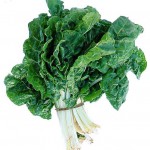The scale has tipped over that number that, in your mind, you’ve connected to “danger, danger!”. The question is - now what? The trouble is what we’ve been “trained” to do through our dieting culture usually only makes matters worse, not better.
What is Undieting?
Weight Loss During Perimenopause
5 Reasons Why I'm Afraid of the Keto Diet
Why I Don't Create Meal Plans. Ever.
Top 4 Foods to Remove From Your Diet Today
A healthier way for weight loss
Why We Don’t Eat What We “Should” Be Eating
I need to start with a spotlight on the word “should”…it’s a big pet peeve of mine. We’re constantly weighed down with what we “should” or “shouldn’t” be doing. We “should” all over ourselves! This is not helpful. The moment we use the word “should” we judge ourselves.
Look at these two sentences:
- I should be eating more vegetables.
- I could be eating more vegetables.
The latter is a statement, while the former has a big weight of judgment added to it. After a while, all of these “shoulds” we fill ourselves with start spilling out and we start to tell others what they “should” be doing.
“Should” doesn’t help us move forward, it holds us down. When it comes to diet we all know what we “should” be eating, but few of us do it. Let’s throw away the unhelpful word “should” and replace it with non-judgmental words like “could”, “can”, or even “will”.
Ahhhh, that feels better :). So, why don’t we eat the healthy diet that we could be eating?
Our daily diet is made up from a collection of decisions, and I feel that to get to the core of our dietary dilemmas we need to look at what drives these decisions. My hypothesis is that our state of mind when we are choosing what to eat drives what we choose to eat. Let me give you some examples:
Scenario 1: You come home from work and you’re STARVING! You could eat almost anything that’s put in front of you. You’re craving a fast hit of sugar or carbs, and you want it now. Your energy is low and the prospect of spending the next hour chopping, cooking, and waiting for dinner is very unappealing. So…what do you do? Make a big healthy meal, or just grab some chocolate from the cupboard? Or, do you just pick up something quick for dinner on your way home?
Scenario 2: You come home from work and you're feeling a bit hungry. You feel like you could eat in the next hour or two. Your energy is pretty good and you would really like to eat a big pile of vegetables (yes, this scenario is possible). You look in the fridge and put together a gorgeous coconut milk curry full of veggies, chickpeas, served over brown rice. The process is enjoyable and ready in about 40 minutes.
What is the difference between Scenario 1 and 2? You might say #2 is almost impossible, or only happens once in a blue moon…or only happens for super-healthy people who don’t eat anything close to a “normal diet”. …what if I said you’re dead wrong?
What if the difference between Scenario 1 and 2 is simply the difference between an imbalance in blood sugar and balanced blood sugar? What if Scenario 2 was possible for everyone with only a few small changes to your diet?
We tend to think of blood sugar issues only in relation to Type II Diabetes or Hypoglycemia, but the fact is many of us are dealing with mild-to-moderate blood sugar issues every day. These are imbalances we feel, but don’t turn up on blood tests. These blood sugar issues lead to weight gain, low or fluctuating energy, sugar/carb cravings, and a lack of motivation. They affect our life every day and are the driving factor behind poor food choices.
Ask yourself the following questions:
- Do you feel Scenario 1 at least one time per week?
- Is hunger immediate? Do you need to eat relatively quickly (within the next hour) when you feel hungry?
- Do you have energy dips throughout the day?
- Do you crave sugar, carbs, or sugary drinks throughout the day?
- Do you carry food with you all the time just in case you suddenly feel hungry?
If you answered “yes” to any of these questions, your blood sugar isn’t balanced.
Balancing your blood sugar is surprisingly easy and it allows you to make better decisions with your diet. Imagine having one hour or more to make a meal when you feel hungry! If you had this time, what would you make? That big healthy meal sounds more appealing now, doesn't it :)?
The first step towards finding balance is to look at how food makes you feel. How do you feel immediately after eating? How about after one hour? How long can you go before you feel like you're “starving”?
Balanced energy, weight-loss, and a healthy diet are all within reach with just a few small changes! Starting today, stop thinking about what you “should” be doing, and look at how your current diet is affecting your decisions.
Lisa Kilgour, Registered Holistic Nutritionist from EatMoreRealFood.com, loves to help others find balance and be happy.
Lisa has clients from all over Canada and consults in person, and via phone and Skype. Contact Lisa today and take the first step towards good health!











